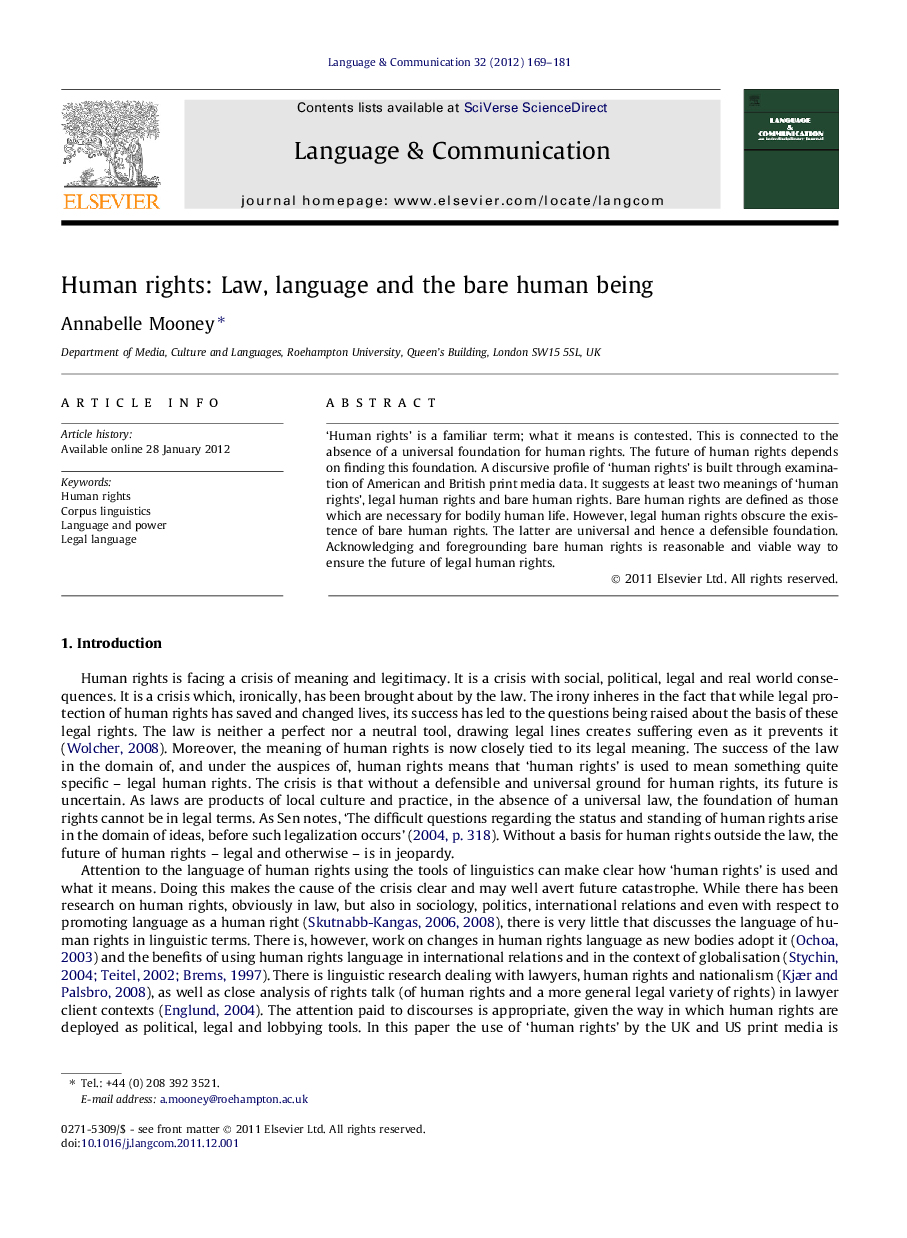| Article ID | Journal | Published Year | Pages | File Type |
|---|---|---|---|---|
| 934779 | Language & Communication | 2012 | 13 Pages |
‘Human rights’ is a familiar term; what it means is contested. This is connected to the absence of a universal foundation for human rights. The future of human rights depends on finding this foundation. A discursive profile of ‘human rights’ is built through examination of American and British print media data. It suggests at least two meanings of ‘human rights’, legal human rights and bare human rights. Bare human rights are defined as those which are necessary for bodily human life. However, legal human rights obscure the existence of bare human rights. The latter are universal and hence a defensible foundation. Acknowledging and foregrounding bare human rights is reasonable and viable way to ensure the future of legal human rights.
► The meaning of human rights is contested. ► Examination of media representation shows ‘human rights’ is polysemous. ► The dominant meaning of ‘human rights’ is ‘legal human rights’. ► A non-legal meaning is needed for human rights to be universal. ► Bare human rights is based on the human body and is universal.
